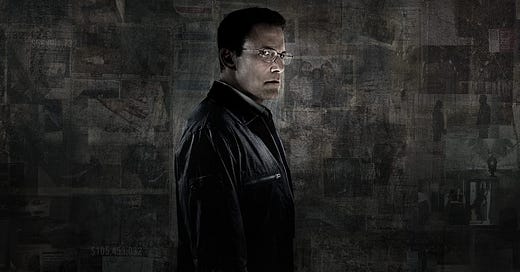The Accountant 2
For the sequel starring Ben Affleck as an assassin on the spectrum, the filmmakers went the buffet route of 'let's put in a little bit of everything,' leaving the ledger with a dearth of assets.
I seemed to recall more or less enjoying “The Accountant,” the action/thriller starring Ben Affleck as bean-counter on the autism spectrum who moonlights as an assassin, which was a modest commercial hit in 2016. I didn’t remember it leaning so much into comedy until I revisited my review of it, and that was my chief complaint about it.
With the arrival of the sequel, I have the same beef. It’s an interesting premise for a dark story about a social alienated guy who nevertheless is very skilled at clocking people’s motivations and behaviors. But then it devolves into quips, side-pieces and bromance buffoonery.
Honestly, “The Accountant 2” depleted the balance of my patience rather quickly.
Director Gavin O’Connor and screenwriter Bill Dubuque, both holdovers from the last movie, seemed to have gone the buffet route of ‘let’s put in a little bit of everything.’ The result is a schizophrenic movie trying to be many things and succeeding at none of them — a ledger with a dearth of assets.
So it’s the story of Christian Wolff (Affleck), a mysterious ex-con who passes himself off as a CPA while laundering money for all sorts of nasty global figures and occasionally taking on hitman jobs. In the last movie he partnered with Anna Kendrick to take on the evil CEO of a robotics company, but she’s nowhere to be found or mentioned in the sequel.
It’s also the tale of Christian reuniting with long-lost brother, Braxton (Jon Bernthal), also an international assassin and also with deep-seated behavioral issues, although in his case it projects as hyper-extroversion. I had completely forgotten Braxton was in the last movie, and apparently the siblings have had no contact since those events — which only adds to Braxton’s beefs.
We’ve also got the Harbor Neuroscience Center, a special X-Men type of school for gifted youngsters like Christian, a place he funds with his ill-gotten gains and then employs the kiddies to do his code-breaking and digital snooping. The head mistress (Allison Robertson) who’s non-verbal, speaks to Christian through an earpiece using a British-accented voice generator, operating as his “guy/gal in the chair.”
But wait! There’s also the mysterious female assassin who operates much along the lines of Braxton and Christian, even using the same Slavic-sounding middleman for their contracts. Played by Daniella Pineda, she’s similar to Christian in that she operates more or less without emotion after a serious injury that resulted in Acquired Savant Syndrome, where normal people are turned into geniuses — in her case, the killing kind.
(Sounds like goofball Hollywood BS, but I Googled and it’s a thing.)
The case that spurs the start of the story is the work of Ray King (J. K. Simmons), the former head of the U.S. Treasury FinCEN (financial crimes) department, who after retiring became obsessed with disappearance of a family of immigrants from El Salvador, in particular their missing 13-year-old son who may just be — you guessed it — another Christian-type prodigy.
Ray croaks early on, so the quest is taken up by Marybeth Medina (Cynthia Addai-Robinson), Ray’s protege and another figure I had completely forgotten was in the first movie. Much of the first half of the film is taken up with her reluctantly partnering with Christian in a mismatched buddy-cop dynamic, with Marybeth put off by his tendency to torture or kill anyone who doesn’t cooperate.
You’d think that’s enough, but no…
We also have Burke (Robert Morgan), a Limey fishmonger who is secretly a peddler of human flesh, snatching up illegal immigrant women to become his beholden army of prostitutes. Christian comes to suspect he may be involved in the disappearance of that family Ray was investigating.
Just from a basic storytelling perspective it’s nigh impossible to balance all these different narrative elements, much less blend them into a thematically consistent piece. The movie doesn’t even seem to try, ping-ponging from yuks to terrifying moments, all building up to a huge shootout finale where Christian and Braxton take on about 150 bad guys with automatic weapons.
At one point, the boys decide to go to a honkytonk bar to have some fun, and Christian winds up getting charmed by a comely waitress and even attempts a little boot-scoot boogie-ing.
In another tonally orphaned scene, Christian uses his elite mathematical skills to crack the algorithm of a dating meetup outfit. They didn’t hire him; he just appears to do it for fun. Of course, all the women line up to do table-dates with Christian because he looks exactly like Ben Affleck. But then he opens his mouth…
Affleck speaks in a weird voice that is somehow both sing-songy and tuneless. I don’t remember him doing that in the original movie, but as we’ve seen most of it fled from memory, so I could be wrong. He sounds vaguely like Dustin Hoffman in “Rain Man” by way of Milton the stapler guy from “Office Space.”
Really, if you had told me “The Accountant 2” was actually intended as a satirical send-up of the first movie, that would make more sense than anything I can tabulate.





